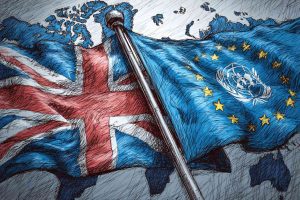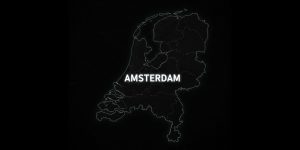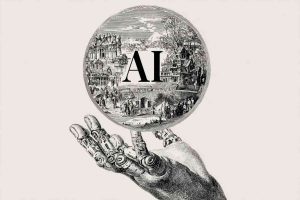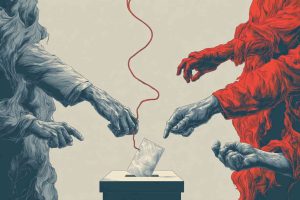De Nederlandsche Bank: political bias, policy failure and economic harm
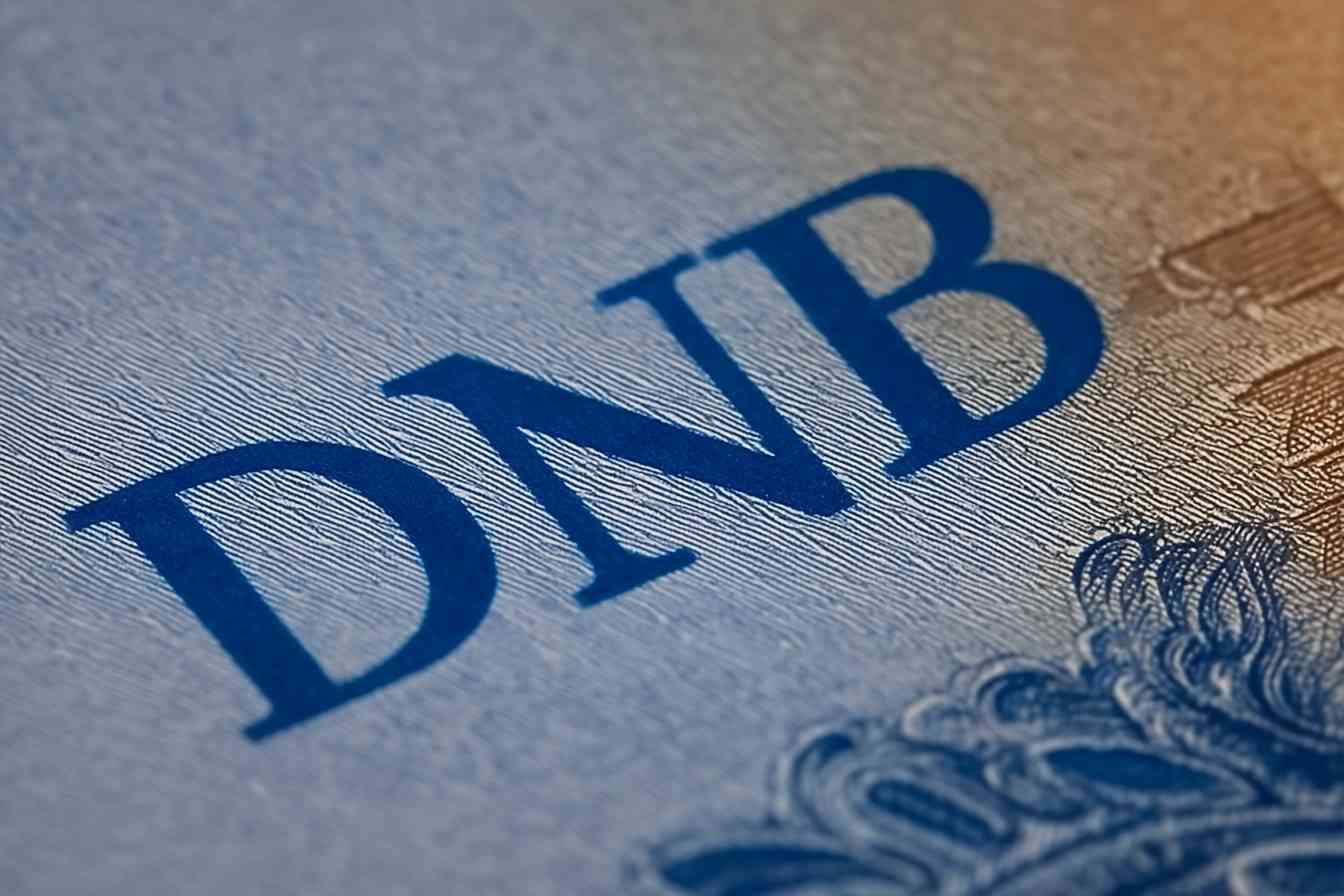
The illusion of independence
De Nederlandsche Bank (DNB) presents itself as an independent guardian of financial stability and monetary policy. In reality, the institution operates within an ideological and political framework that seriously undermines its independence. Since joining the European Monetary Union, DNB has increasingly become an implementing arm of the European Central Bank (ECB), and its policies appear more aligned with European objectives than with the interests of Dutch citizens.
Although DNB’s formal task is to safeguard price stability and a healthy financial system, in practice it mainly serves to protect the monetary and institutional interests of the European elite. The promise of stability has been replaced by a technocratic form of governance in which national interests are subordinate to supranational dogmas.
The ideological shift of DNB
De Nederlandsche Bank is no longer merely an institution that supervises banks and financial markets. In recent decades, it has increasingly become a vehicle for political and societal ideologies. Topics such as climate change, diversity, and sustainability have taken a prominent place in DNB’s policy documents and public statements.
For example, former president Klaas Knot repeatedly emphasized that DNB wants to be a “green” central bank, and that climate risks should be a core component of financial supervision (Toespraak bij Sustainable Finance Lab, Klaas Knot). This may sound noble, but it raises the question of why an institution primarily responsible for monetary policy concerns itself with ideological themes that belong in the political domain. By engaging in debates about climate, inclusivity, and ESG objectives, DNB abandons its neutral role and aligns itself with a policy agenda that lacks democratic legitimacy.
It is not the role of a central bank to promote social trends or pursue normative goals, but to safeguard economic stability. Yet we see DNB aligning itself with international ideological networks, including the Network for Greening the Financial System (NGFS), where climate policy is explicitly integrated into financial supervision. As a result, DNB loses the neutrality needed to act credibly as a referee in the economy.
Submission to European interests
Since the introduction of the euro in 2002, DNB has ceased to be an autonomous player in the monetary field. Policy is largely determined by the European Central Bank in Frankfurt. Decisions on interest rates, money supply, and asset purchase programs are made centrally, meaning the Netherlands has lost its monetary sovereignty. DNB executes policy but no longer decides it.
This dependency leads to policies that are not always beneficial to the Dutch economy. The prolonged period of extremely low interest rates, imposed by the ECB, led to an unprecedented housing bubble in the Netherlands, punishing savers and rewarding debt. The ECB’s rate policy primarily served weaker Southern European economies but caused major imbalances in the Netherlands. DNB defended this course despite the visible damage to citizens’ purchasing power and housing market stability.
The connection between DNB and European institutions is not only technical but also ideological. Both DNB and the ECB promote the same economic narrative: integration, centralization, and the necessity of a “more united Europe.” In that sense, DNB no longer functions as a national bank but as a missionary of the European project, where the sovereignty of the Dutch citizen dissolves into a bureaucratic network of unelected technocrats.
Consequences for Dutch citizens
The consequences of this policy are felt in everyday life. The inflation that has plagued the eurozone since 2021 has severely eroded the purchasing power of Dutch households. DNB and the ECB’s response was late and timid, as they clung to the illusion that inflation was merely “temporary.” Only when public trust began to collapse were interest rate hikes implemented, too late to prevent damage (The Impact of High Inflation on Trust in National Politics and Central Banks, DNB Working Paper).
While citizens saw their savings evaporate, DNB remained focused on its reputation and international standing. Its emphasis on “transition policy” and “sustainable investment” may sound morally elevated, but it offers no relief to the citizen facing rising housing costs, higher grocery prices, and a crumbling pension system. DNB insists that its policies are about “long-term stability, ” but that stability primarily benefits financial institutions and governments, not ordinary Dutch people.
Even its banking supervision has taken on a political character. DNB enforces European capital requirements that affect the competitiveness of Dutch banks, while foreign institutions often receive more lenient treatment. The emphasis on regulation and risk management has created a system where bureaucracy matters more than economic vitality. Small entrepreneurs and individuals find it harder to access credit, while large banks are bailed out with billions when they fail.
The moral façade
De Nederlandsche Bank increasingly presents itself as the moral compass of society. It uses its authority to influence public debate on issues like income inequality, gender diversity, and the financial sector’s role in the “sustainable transition.” This tone fits into a broader pattern where financial institutions present themselves as moral leaders despite lacking democratic legitimacy.
DNB’s moral posture masks its failure in its core duty: safeguarding purchasing power, price stability, and national financial health. By playing the moral card, DNB diverts attention from fundamental questions about the effectiveness of its policies. This mechanism is not new; it mirrors the ECB’s strategy during the euro crisis, when moral arguments about European solidarity were used to justify monetary centralization.
From supervisor to policymaker
What is particularly concerning is that DNB increasingly issues policy recommendations far outside its mandate. The bank has spoken out on housing policy, climate financing, and even income distribution. In reports and speeches, it suggests that economic inequality and climate change threaten financial stability, thereby indirectly advocating political measures.
This expansion of its role undermines democratic balance: an unelected institution now influences policy areas that traditionally belong to the government and parliament. As a result, DNB’s technocratic power grows at the expense of democratic accountability.
A technocracy without accountability
The problem with DNB is not merely that it makes mistakes, but that it is scarcely held accountable for them. Its board is unelected, its policy frameworks are largely European, and criticism can easily be dismissed as “populist” or “uninformed.” This distance between governance and the public leads to growing distrust. According to DNB’s own research, trust in central banks has declined as inflation and inequality have increased (The Impact of High Inflation on Trust in National Politics and Central Banks, DNB Working Paper).
DNB has become a technocratic institution that prioritizes its worldview over the interests of the people. It claims to bring stability, but produces complexity, conformity, and moral self-justification. Where the bank once symbolized national financial discipline, it has now become an executor of European politics and ideology.
The return of accountability
What is missing is democratic control. De Nederlandsche Bank cannot continue to hide behind European structures or moral rhetoric. Its leaders should be compelled to answer for their policy choices, ideological direction, and priorities. A central bank can only be credible when it limits its mandate to what it was originally created for: protecting the value of money and ensuring financial stability in the interest of citizens.
The future of DNB will depend on its willingness to return to that core. As long as it remains a political and ideological extension of European institutions, the trust of the Dutch population will continue to erode, and with that trust, the legitimacy of the entire monetary system on which it rests.




